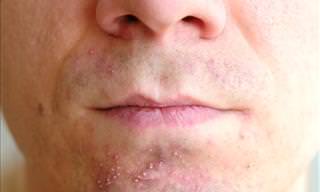It is likely you have heard the term argan oil being thrown around in the context of beauty, haircare, and skincare recently. Many brands have been incorporating it heavily in their products, and it is actually not just a fad.
Argan oil has quite a few scientifically proven benefits – so in this case, you should definitely believe the hype. So what exactly is argan, where does it come from and why does everyone seem to love it?
What is Argan Oil?
Argan Oil is produced from the fruits of argan trees, which grow almost exclusively around the Atlas Mountains in Southwest Morocco. The oil is extracted from the kernels of the fruits. The edible and the cosmetic version are extracted almost identically; the only difference being that for cooking oil the kernels are roasted before the extraction.
If you’re interested in using the oil for cooking purposes, make sure you buy one that is marketed for such use or one that is 100% argan oil. Cosmetic argan oil is often mixed with ingredients that should not be ingested.
Attempts have been made to industrialize the process, but for now, they have remained unsuccessful. Argan oil is still produced manually in the traditional way, mostly by Berber women. Naturally, Moroccan women have been aware of the many qualities of argan oil for far longer than the rest of the world – they have been applying it on their hair, face, and nails since 600 BCE!
After reading these 9 benefits of Argan oil, you too will probably consider adding it to your daily routine.
1. It Contains Essential Nutrients and Antioxidants
Argan oil is comprised of fatty acids, primarily linoleic acid (omega 6) and oleic acid. Unlike Omega 6, oleic acid is not essential but is still a very healthy fat found in olive oil as well. It is also known to improve skin permeability, thus assisting other products to better absorb into your skin.
Argan oil also contains high levels of Vitamin E, which acts as a powerful antioxidant. In a nutshell, antioxidants are naturally occurring vitamins that protect the skin and other organs from free radicals. Free radicals, despite their cool sounding name, are molecules in the environment that cling to your collagen, weaken elasticity and overall damage your skin.
Free radicals have also been believed to contribute to the development of other degenerative conditions, such as diabetes and even cancer.
2. Hydrates Dry Skin and Soothes Inflamed Areas
This leads us right into the thing argan oil is best known for – moisturizing the skin. Thanks to the ingredients listed above, argan oil makes the skin feel smooth and soft and is even sometimes used in cases of eczema or a sunburn. Not only that, argan oil was found to reverse and prevent skin discoloration caused by exposure to the sun (age spots, scars).
3. Keeps the Wrinkles Away
A study conducted in 2014 has found that women who applied argan oil on their skin or consumed it orally improved their skin's ability to retain water. In other words, their skin showed fewer signs of aging, like wrinkles. Many women report attaining good results in applying creams containing argan oil to prevent or treat stretch marks. This is probably due to said ability of the oil to enhance skin elasticity.
4. Improves Heart Health
The oleic acid is credited to have cardiovascular strengthening benefits. Several studies regarding the link between argan oil and heart performance have shown promising results. For example, research suggests that a higher intake of argan oil was associated with lower levels of “bad” LDL cholesterol. An overly high level of Low-Density Lipoprotein (LDL) can lead to a buildup of cholesterol in your arteries.
5. Good for Oily and Acne-Prone Complexion As Well
Using oil to treat oily skin or acne may sound counterintuitive, but argan oil can actually help balance your natural sebum levels. Sebum is the natural oil produced by our skin. The application of argan oil can reduce the production of sebum and help you get rid of that shiny-looking complexion and reduce the number of breakouts you experience from clogged up pores.
6. Protects the Hair
You’re already familiar with the positive impact of argan oil on the skin, and there is no difference when it comes to your scalp. A healthy scalp is sure to grow healthy hair. Massaging a bit of argan oil to your scalp will do wonders in enhancing shine and texture in your hair.
If you have oily roots, though, it will be better to only apply it to the ends of your hair for added health and hair shine. Furthermore, the antioxidants will make colored hair less likely to lose its pigment - in other words, it makes artificial hair color last longer.
7. Strengthens Nails
Some people have naturally brittle nails, and sometimes, the nails are weakened as a result of applying artificial nails or acrylics and the general use of acetone-heavy products. Exposure to such materials can lead to moisture imbalance. This can be easily fixed by applying argan-oil based nail products.
Those can also improve the look of dry and hard cuticles, which are often a result of nervous habits, such as biting or scratching the nail beds. You can also apply pure argan oil on your nail and cuticle for the same benefits.
8. Super Easy to Incorporate Into Your Routine!
You don’t have to set out and buy many different expensive products to take advantage of all the health benefits of argan oil. You can just apply a few drops of pure organic argan oil into your existing skincare or hair care routine, or buy a bottle of the oil to use in cooking. Argan oil can be used in a variety of dishes, from salad dressing to grilled fish, and more.
 Go to BabaMail
Go to BabaMail

































